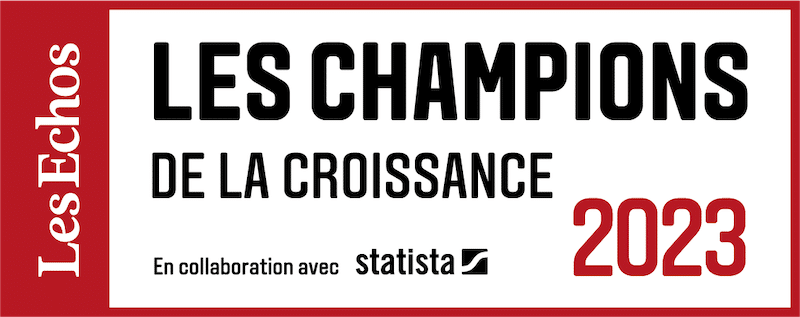3 tips for a successful career in development
12/02/2024
6min
At Blue Soft, we believe that a successful career in development requires the right blend of in-depth technical know-how and the right mindset. In this article, we'll explore the 3 key points that will enable you to put all the chances on your side.
A career in development: cultivating curiosity and continuous learning.
The first key to a career in development is the ability to learn how to learn. It may sound trivial, but it's going to be crucial for a beginner to be able to ramp up skills effectively and quickly. This can be achieved through courses and tutorials, whether on YouTube, at school or on specialized forums. Another method is to work with the documentation provided by the various development frameworks. A perfect example is the Angular page, where you'll find comprehensive documentation on the Angular website, including details of all new versions. https://angular.io/tutorial/first-app
Most of these sites offer courses to suit all levels, whether you're a total beginner or an expert just looking for the latest.
Un autre bon moyen de monter en compétences est de travailler sa capacité à apprendre en autonomie. Quand vous allez faire face à un nouveau problème, cherchez à le résoudre par vos propres moyens dans un premier temps. Il peut être tentant de faire appel à quelqu’un d’expérimenté dans votre équipe dès le début, mais bien souvent c’est par la recherche de la solution que l’on progresse le plus. Comme on le dit souvent, l’important, c’est le voyage, pas la destination. Bien évidemment, si vous restez bloqué trop longtemps, il ne faut pas hésiter à demander de l’aide. C’est d’ailleurs un excellent conseil que nous donnait Gregory, le développeur Fullstack couteau suisse de notre agence rouennaise. « Savoir chercher, c’est une compétence très importante, savoir trouver même » Chercher par soi-même dans un premier temps, mais ne pas faire l’autruche et rester bloqué trop longtemps au risque de mettre en retard tout le monde sur un projet.
To listen to the full extract, click here: https: //app.ausha.co/app/show/90828/episodes/preview/2710736
Our first piece of advice is to be curious in order to succeed.
To finish with this section, don't hesitate to step outside the academic realm by visiting online communities, forums and events dedicated to developers. You can, for example, take part in competitions such as hackathons to learn how to work fast and well, and exchange ideas with your peers.
Diversify your technical knowledge for a successful career in development.
Like any other field, IT development is based on fundamentals. So if you want to succeed, you mustn't neglect them. Working with C and C++ won't make you a genius, but it will give you the keys to understanding your adventure in the world of development.
You don't have the basics, as the other guy would say.
Before working on high-level languages, in the sense of those that are highly comprehensible to humans, it may be important to start with languages that are as close to the machine as possible. This will give you a fine-tuned understanding of how computers work.
Another thing we recommend is that you start by touching on a little bit of everything to get the hang of it: front end, back end, mobile and artificial intelligence. The aim here is to identify which of the multitude of programming languages and application domains you're passionate about and comfortable with. It's much easier to become an expert in something you love. If you can combine that with a technology that's in high demand on the market, then you've hit the jackpot.
You can also try your hand at Pair Programming to quickly build up your skills.
Specialize as soon as possible for a successful career in development
Once you've followed the first two steps, be curious and identify the language that appeals to you the most. Our last and probably most important recommendation is: specialize!
It's better to be very good at one specific language than mediocre at many.
Being specialized will make it much easier for you to sell yourself on the market. If you feel you've reached the end of your learning process, always start by delving deeper into one specific area before moving on to the next.
This starts with your first professional experiences. Avoid spreading yourself too thinly, and choose teams where you can build on your strengths. Then, once you've become better at what you do, you'll always have the opportunity to experiment with other languages and technologies.
You'll be identified much more quickly as an expert on the market if you focus from the outset and follow this path all the way through your beginnings, and afterwards if you don't tire of it.
Finally, if you aspire to become a leader on a project or take on management positions, it's often by choosing the voice of expertise that you'll get there.
Mind you, we're not saying that being Fullstack is a bad thing, but they too have varying levels of expertise in different languages.
As that famous tire brand used to say, power is nothing without control.
In short, the keys to a successful career in development :
- Don't overlook the impact of curiosity on your professional and personal success.
- Explore the opportunities available to you before specializing.
- Specialize and become the best you can be in this specialty before exploring other languages.
Oh, and by the way, we forgot to tell you that we're recruiting for 200 positions in 2024. Feel free to take a look at our recruitment platform from time to time.
3 tips for a successful career in development
12/02/2024
6min
At Blue Soft, we believe that a successful career in development requires the right blend of in-depth technical know-how and the right mindset. In this article, we'll explore the 3 key points that will enable you to put all the chances on your side.
A career in development: cultivating curiosity and continuous learning.
The first key to a career in development is the ability to learn how to learn. It may sound trivial, but it's going to be crucial for a beginner to be able to ramp up skills effectively and quickly. This can be achieved through courses and tutorials, whether on YouTube, at school or on specialized forums. Another method is to work with the documentation provided by the various development frameworks. A perfect example is the Angular page, where you'll find comprehensive documentation on the Angular website, including details of all new versions. https://angular.io/tutorial/first-app
Most of these sites offer courses to suit all levels, whether you're a total beginner or an expert just looking for the latest.
Un autre bon moyen de monter en compétences est de travailler sa capacité à apprendre en autonomie. Quand vous allez faire face à un nouveau problème, cherchez à le résoudre par vos propres moyens dans un premier temps. Il peut être tentant de faire appel à quelqu’un d’expérimenté dans votre équipe dès le début, mais bien souvent c’est par la recherche de la solution que l’on progresse le plus. Comme on le dit souvent, l’important, c’est le voyage, pas la destination. Bien évidemment, si vous restez bloqué trop longtemps, il ne faut pas hésiter à demander de l’aide. C’est d’ailleurs un excellent conseil que nous donnait Gregory, le développeur Fullstack couteau suisse de notre agence rouennaise. « Savoir chercher, c’est une compétence très importante, savoir trouver même » Chercher par soi-même dans un premier temps, mais ne pas faire l’autruche et rester bloqué trop longtemps au risque de mettre en retard tout le monde sur un projet.
To listen to the full extract, click here: https: //app.ausha.co/app/show/90828/episodes/preview/2710736
Our first piece of advice is to be curious in order to succeed.
To finish with this section, don't hesitate to step outside the academic realm by visiting online communities, forums and events dedicated to developers. You can, for example, take part in competitions such as hackathons to learn how to work fast and well, and exchange ideas with your peers.
Diversify your technical knowledge for a successful career in development.
Like any other field, IT development is based on fundamentals. So if you want to succeed, you mustn't neglect them. Working with C and C++ won't make you a genius, but it will give you the keys to understanding your adventure in the world of development.
You don't have the basics, as the other guy would say.
Before working on high-level languages, in the sense of those that are highly comprehensible to humans, it may be important to start with languages that are as close to the machine as possible. This will give you a fine-tuned understanding of how computers work.
Another thing we recommend is that you start by touching on a little bit of everything to get the hang of it: front end, back end, mobile and artificial intelligence. The aim here is to identify which of the multitude of programming languages and application domains you're passionate about and comfortable with. It's much easier to become an expert in something you love. If you can combine that with a technology that's in high demand on the market, then you've hit the jackpot.
You can also try your hand at Pair Programming to quickly build up your skills.
Specialize as soon as possible for a successful career in development
Once you've followed the first two steps, be curious and identify the language that appeals to you the most. Our last and probably most important recommendation is: specialize!
It's better to be very good at one specific language than mediocre at many.
Being specialized will make it much easier for you to sell yourself on the market. If you feel you've reached the end of your learning process, always start by delving deeper into one specific area before moving on to the next.
This starts with your first professional experiences. Avoid spreading yourself too thinly, and choose teams where you can build on your strengths. Then, once you've become better at what you do, you'll always have the opportunity to experiment with other languages and technologies.
You'll be identified much more quickly as an expert on the market if you focus from the outset and follow this path all the way through your beginnings, and afterwards if you don't tire of it.
Finally, if you aspire to become a leader on a project or take on management positions, it's often by choosing the voice of expertise that you'll get there.
Mind you, we're not saying that being Fullstack is a bad thing, but they too have varying levels of expertise in different languages.
As that famous tire brand used to say, power is nothing without control.
In short, the keys to a successful career in development :
- Don't overlook the impact of curiosity on your professional and personal success.
- Explore the opportunities available to you before specializing.
- Specialize and become the best you can be in this specialty before exploring other languages.
Oh, and by the way, we forgot to tell you that we're recruiting for 200 positions in 2024. Feel free to take a look at our recruitment platform from time to time.





